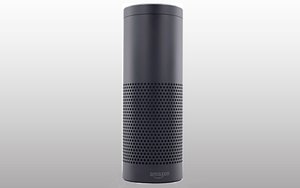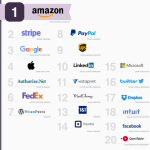Mary Meeker: Voice Technology A New Paradigm For Search
by Laurie Sullivan, , Staff Writer @lauriesullivan, (June 03, 2016)
 Google and Facebook controlled about 76% of Internet advertising in 2015, according to Mary Meeker, partner at Kleiner Perkins Caufield & Byers. Google owns the lion’s share, but rose a mere 18% year-on-year, whereas Facebook rose 59%, respectively — demonstrating the social network’s growing dominance in online advertising.
Google and Facebook controlled about 76% of Internet advertising in 2015, according to Mary Meeker, partner at Kleiner Perkins Caufield & Byers. Google owns the lion’s share, but rose a mere 18% year-on-year, whereas Facebook rose 59%, respectively — demonstrating the social network’s growing dominance in online advertising.
Despite Google’s immediate dominance, Meeker’s annual Internet Trends report, which many watch closely, underscores the growth of mobile, particularly on social platforms that now control the bulk of ad spending for marketers and time spent by users. But it really underscores the importance voice search and interactions will have on the world.
Voice input will become the most efficient form of computing — it will change advertising. While the trend report from Mary Meeker, partner at Kleiner Perkins Caufield & Byers, suggests that by 2020 half of all Web searches will be made through voice and image search, I believe that percentage will rise much higher — about 65%. The percentage of U.S. smartphone owners already using voice assistants in 2015 already reached 65% in 2015 — up from 56% in 2014 — and 30% in 2013, according to the data.
Google data gathered since 2008 suggests that most of the queries are to navigate home, call mom or call dad. In fact, Google Trends imply queries associated with voice-related commands have risen more than 35-times since 2008 after launch of iPhone and Google Voice Search, according to Meeker’s trend report.
Sound Hound, another voice technology, counts about six to eight queries per active user per day among its more than 100 domains across four categories. Local information gets about 22%, fun and entertainment, 21%; personal assistant, 27%; and general information, 30%.
Meeker’s trend report shows that voice is gaining search share. In the U.S. Android owns about 20%, Baidu about 10%, and Bing’s taskbar about 25%.
In May 2016, one in five searches on a mobile app in the U.S. running Android were voice searches. In June 2015, Siri handled more than 1 billion requests per week through speech. For Bing, in May 2016, Bing said one in four or 25% of searches performed on the Windows 10 taskbar are voice searches.
In Meeker’s Internet trends report released at the Re/code conference Wednesday, she calls voice the most efficient form of computing input. It costs less, has a small footprint and supports devices linked to the Internet of things, yet requires natural language processing and recognition.
Meeker points out that Google’s word accuracy rate rose from below 80% in 2013 to above 90% in 2015. As the accuracy rate rises, so will the use. She also notes that as technology brings the world closer to a voice and natural language processing, it may become more difficult to add users as quickly because, in part, the world’s growth domestic product continues to slow.
MediaPost.com: Search Marketing Daily
(20)












